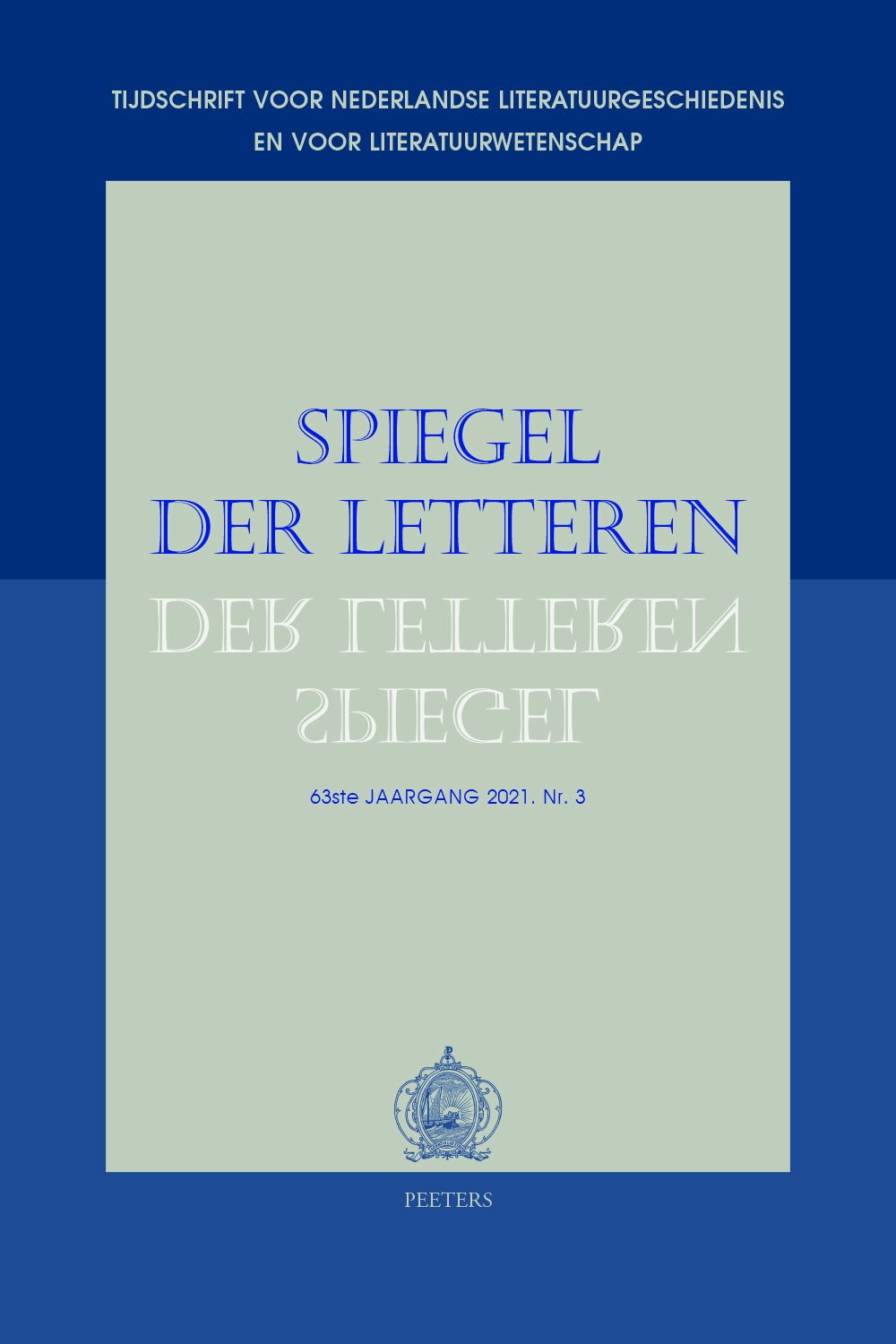 previous article in this issue previous article in this issue | next article in this issue  |

Preview first page |
Document Details : Title: Louis en co. Subtitle: Identiteit en gender in Het verdriet van België van Hugo Claus Author(s): VAN THIENEN, Jos Journal: Spiegel der Letteren Volume: 45 Issue: 1 Date: 2003 Pages: 49-73 DOI: 10.2143/SDL.45.1.503914 Abstract : The project of modernity has brought to the forefront binary and mutually exclusive distinctions such as human/animal, subject/object, mind/body. The most marked and fundamental opposition is the one between man and woman, which rehearses the previous distinctions. Identity is constructed by the experience of otherness or by a logic of exclusion. In postmodern discourse the opposition between self and other is subverted. Both terms get entangled in a third space. Hugo Claus creates such a hybrid space or open human zone in Het verdriet van België. In this novel the arbitrariness of sex, gender and identity is pinpointed by metaphors and representations of hybridity. This explains why androgyny (gender bending) is a main theme. In general the characters don’t act in conformity with typical or stereotyped patterns. They overstep the lines between sexes, genders or identities. In some cases they even coagulate to form relational identities. In the case of the protagonist, Louis Seynaeve, his personal imperfection (lack of coherence and unambiguousness) may be due to his refusal or his inability to submit to the oedipal contract. |
|


